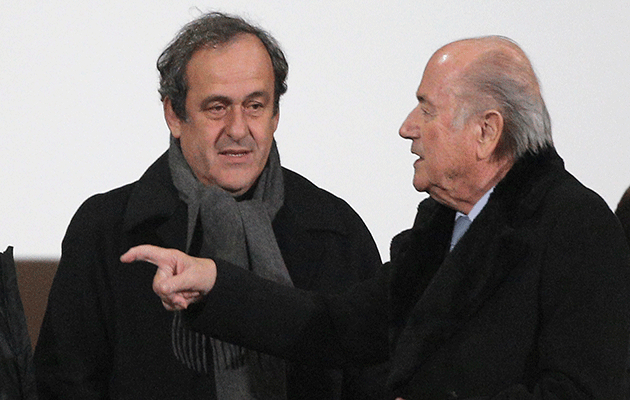Michel Platini’s decision to support Sepp Blatter\s candidacy at the 2011 election came just weeks after he received the controversial 2.6m Swiss francs payment from the Fifa president.
In May 2011, Platini and Uefa’s executive committee declared support for Blatter, and urged national associations to vote for him. Ultimately Blatter won an uncontested election when his only rival, Mohamed Bin Hammam pulled out following corruption allegations.
Blatter is understood to have told Platini at the congress that if he won the election, it would be his final term as president – thus meaning Platini would not face the incumbent if Blatter was re-elected in 2011. Platini’s support as Uefa president was deemed vital in influencing the presidential votes of the Uefa bloc. In the event, and despite claiming publicly that it would be his final term in office, Blatter decided to stand again for re-election in 2015.
The timing of Platini’s decision to support Blatter is an intergral part of the Fifa ethics committee investigation into whether the payment of the money, and also key to whether the Frenchman continues to receive the backing of Uefa.
Uefa’s executive committee and representatives of its 54 European associations meet in Nyon on Thursday to consider the position of Platini, who has been suspended by Fifa’s ethics committee for 90 days pending their investigation.
The Swiss attorney general, Michael Lauber, has initiated criminal proceedings into the payment, questioning Blatter as a suspect for “criminal mismanagement” and Platini, though not charged, as “a person providing information”.
Article 19 of Fifa’s ethics code states that all football officials: “Shall avoid any situation that could lead to conflicts of interest. Conflicts of interest arise if persons bound by this Code have, or appear to have, private or personal interests that detract from their ability to perform their duties with integrity in an independent and purposeful manner.”
Platini was employed by Blatter in a consultancy capacity between 1998-2002. Both men have denied any wrongdoing, but the absence of a written contract detailing the additional work which is alleged to have earned Platini an extra 500,000 Swiss francs annually, has raised questions about the true nature of the payment.
Platini claims Blatter told him Fifa could not afford to pay him the extra money, and that he decided to ask for it in late 2010 – eight years after the work was done.
Platini says he still intends to stand for the Fifa presidency but opinion within Uefa is now divided. Allan Hansen, a Danish member of the Uefa executive committee, said the organisation should withdraw support from the president if he cannot provide a written contract for the Blatter payment.
A decision on Platini’s future is expected later today.







